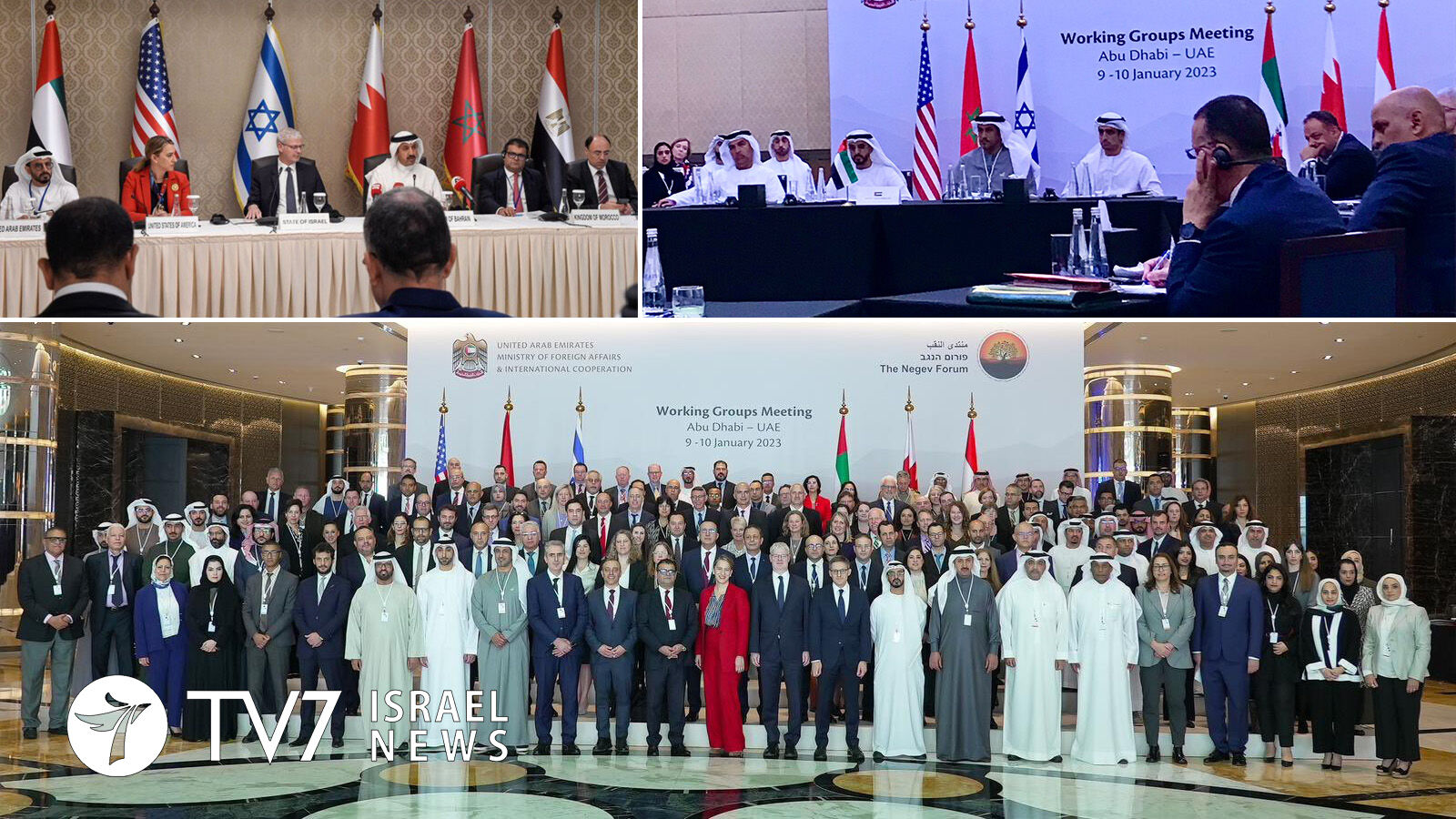The two-day meeting of the Negev Forum steering committee and working groups was hosted by the United Arab Emirates (UAE).
By Erin Viner
Over 150 senior officials and experts from the six member countries of Israel, the United Arab Emirates Bahrain, Morocco, Egypt and the United States participated in the conference.
This was the third meeting of the Negev Forum steering committee. In 2022, the first was held in Bahrain in June and the second as a virtual meeting in October; following the landmark inaugural forum was created by then- Foreign Minister Yair Lapid in March.
The Israeli delegation, headed Ministry of Foreign Affairs (MFA) Director-General Alon Ushpiz, included senior representatives from the Ministries of Agriculture, Health, Defense, Intelligence, Tourism, Energy, Education, the Economy as well as representatives of the water authority and the National Security Council.
Working groups focused on preparation including a list of proposed projects for the Negev Forum Foreign Ministers Summit, which is expected to take place in the coming months in Morocco with the participation of Israeli Minister of Foreign Affairs Eli Cohen.
The Negev Forum was founded at the Negev Summit that convened at Sde Boker last spring, as part of the implementation process of the 2020 Abraham Accords. Six working groups were also determined at the Negev Summit, with the aim of presenting concrete projects to be promoted by the member states. The established groups are entrusted with matters pertaining to health, regional security, education and tolerance, water and food security, tourism and energy, which will be presented to the Negev Forum foreign ministers at their next meeting.
“I expect to see the fruits of this meeting already in the coming months reflected in joint projects for the member states,” said Israeli Foreign Minister Cohen upon conclusion of the steering committee conference.
After thanking the UAE for hosting the talks, MFA Director General Ushpiz said the participants took “another step towards the realization of regional cooperation between the companies, which will allow us to deal in a better way with the common challenges we face and improve the quality of life of the citizens of Israel and our partnership in the Middle East and the USA.”
Jordan was the only Arab country with full diplomatic relations with Israel that failed to send a delegation to the UAE; having previously insisted that it will not join the Negev Forum so long as the Palestinian Authority is not represented – a moot point given Ramallah’s refusal to publicly cooperate with any initiative it believes could sideline its aspirations for statehood. Long advocating that Amman will lag behind in regional development, and US Secretary of State Antony Blinken reaffirmed the White House’ commitment to the Negev Forum during a telephone call with Jordanian Deputy Premier and Foreign Minister Ayman Safadi last Friday.
In a statement issued earlier today, Secretary Blinken hailed the Negev Forum for its “opportunities to advance initiatives that encourage regional integration, cooperation, and development, for the benefit of their populations and the wider region,” including those “that could strengthen the Palestinian economy and improve the quality of life of the Palestinian people.”
Washington’s top diplomat went on to say that “the United States will continue to work with our partners in the region to promote and implement this vision,” referring to the release of the Negev Forum Regional Cooperation Framework (adopted 10 November 2022), “codifying the structure and goals of the Forum and recognizing the potential to build networks of cooperation to advance common interests, regional stability, and prosperity in the Middle East. The Framework affirmed that these relations can be harnessed to create momentum in Israeli-Palestinian relations, towards a negotiated resolution of the Israeli-Palestinian conflict, and as part of efforts to achieve a just, lasting, and comprehensive peace.”
